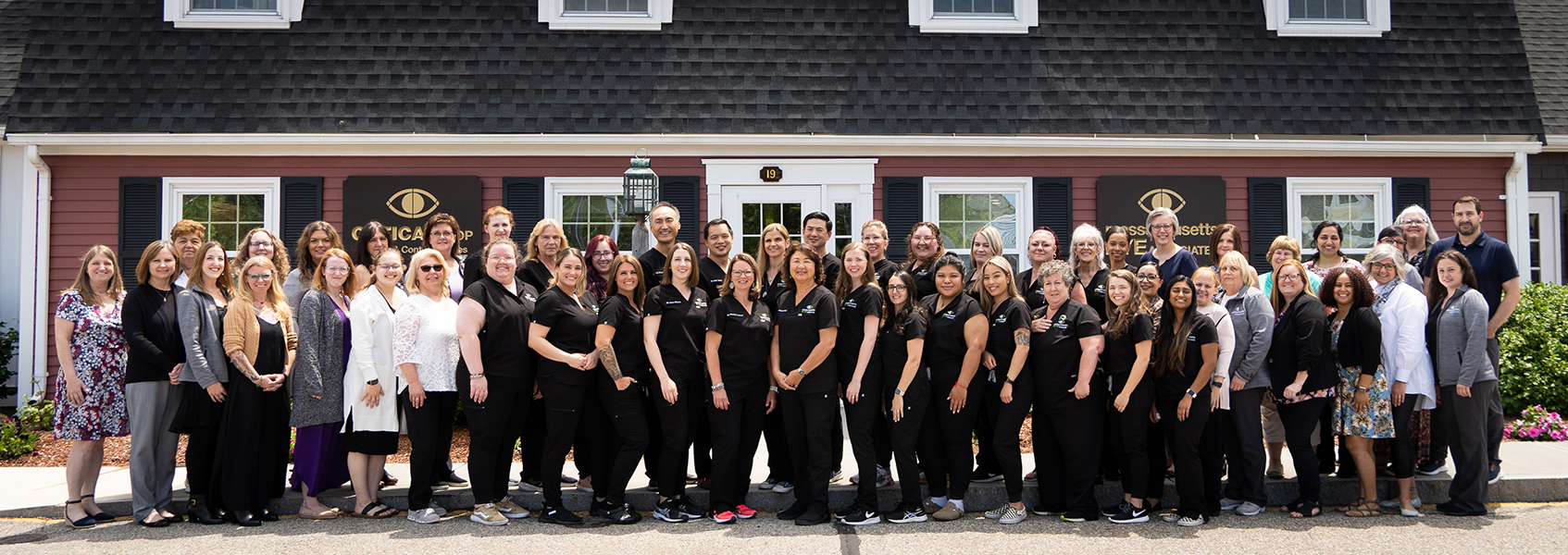About Us

The doctors at Massachusetts Eye Associates provide eye care for the entire family – from infants to seniors, from routine vision to the medical and surgical treatment of disease that threatens sight.
Our mission is to earn your confidence and trust at every encounter by delivering high-quality eye care in a compassionate and understanding manner.
We invite our patients to review their experience with us as a means of understanding whether we are meeting your expectations.
We have three offices that serve the communities of Merrimack Valley and Southern New Hampshire. Our optical shops also offer a broad selection of competitively priced frames and lenses to help you see and look your best.
What you get at Mass Eye Associates is a team of compassionate eye care professionals who are committed to helping you achieve your best possible vision.
We invite you to explore our website to better understanding our capabilities and commitment.

